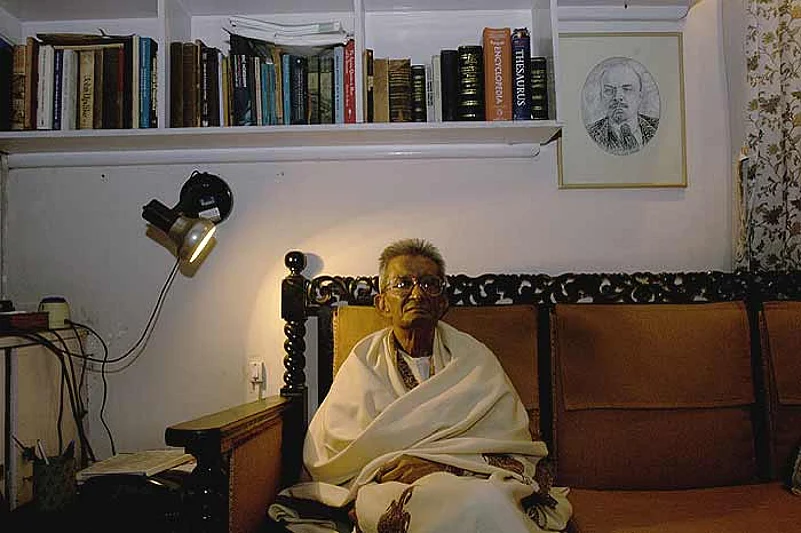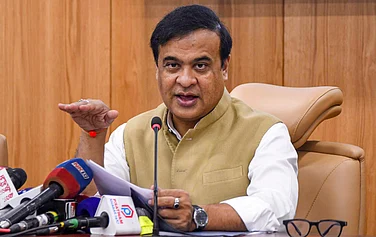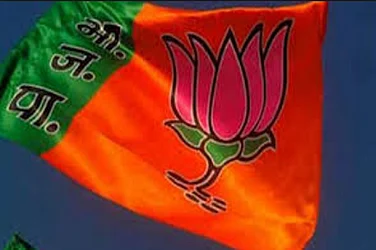Since the early 1990s, Ashok Mitra has been a harsh and articulate critic of economic reforms. Sitting in the spacious study of his apartment in Calcutta’s Alipore on a mellow December afternoon, the outspoken former state finance minister tells Dola Mitra why he was always “left”.
On economic reforms: I call it a surrender of the national economy to predators—both foreign and domestic. In the past, we had some sort of a regulated economy—big businesses ran after politicians. Now politicians run after industrial bosses to get a share of the loot, which this so-called economic reform has arranged for them. By doing so, they have abdicated their duty to exploit the public sector. Even quarter of a century ago, roughly half the national income would come from agriculture, which provided livelihood for three-quarters of India. Industry contributed roughly 15 to 20 per cent. The services sector was a minor contributor, with less than 10 per cent. Now, the services sector generates more than 50 per cent of the national income. Industry gives another 30 per cent. Agriculture and allied activities have shrunk so that they contribute below 20 per cent but continue to absorb more than two-fifths of our workers, frighteningly aggravating income inequality.
On the rich and poor: Three hundred million Indians still starve, getting less than the minimum nutrition needed. Another 300-400 million are not starving but are poor. On the other hand, we have the emergence of billionaires. It’s a shame that we will have more billionaires than Europe or Japan. Discontent is going up as disparity gets pronounced. Sooner or later this will get mobilised, as in Chhattisgarh, Jharkhand and Manipur. There will be more such pockets and we will face an incendiary situation. The politicians are unaware of the prospects that lie ahead. As for businessmen, they think they can rule forever through foreign favour and exploitation.
On foreign exchange: With improved technology, labour productivity has jumped 10-15 or even 20 times. But their wages have gone up by barely 10-15 or maybe 20 per cent. The remainder is absorbed (by the rich). This operates on the back of weakening the trade union movement—the moment workers start protesting, they will be laid off. Today there is very little organised trade union resistance. Now, the rich want to spend all that money, but as incomes rise, they spend a diminishing proportion on food. For the rest, there is a diversion to luxury goods—like big cars, jewellery, sophisticated food, drinks and communications equipment—which we also import. And you need foreign exchange for this. For that you sell some goods abroad...raw materials or food items like Basmati rice, cotton and jute. But the major export is software. Therefore, outsourcing becomes very important. The second source of foreign exchange is capital inflow. As the government likes foreign capital, it does not tax transactions in stock exchanges or export earnings. But whether this will hold depends on foreigners continuing to outsource and by sending capital in.
On reforms with a human face: There is no human face. It is absolutely dehumanised. Let me be blunt. With so much of poverty and destitution, a billionaire has the audacity to build a house worth Rs 5,000 crore when half the population of Mumbai lives in jhopad pattis. This is what economic liberalisation has brought about.
On corruption: The entire system has got corrupted. Ministers, civil servants, judges and of course, other people in power are all, as a class, corrupt. They bribe others and accept bribes.


























